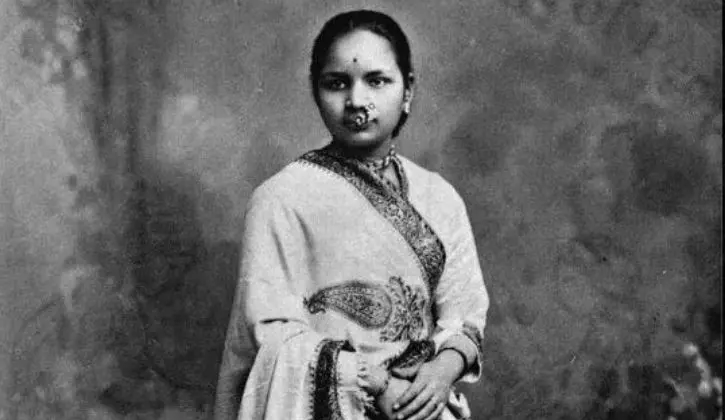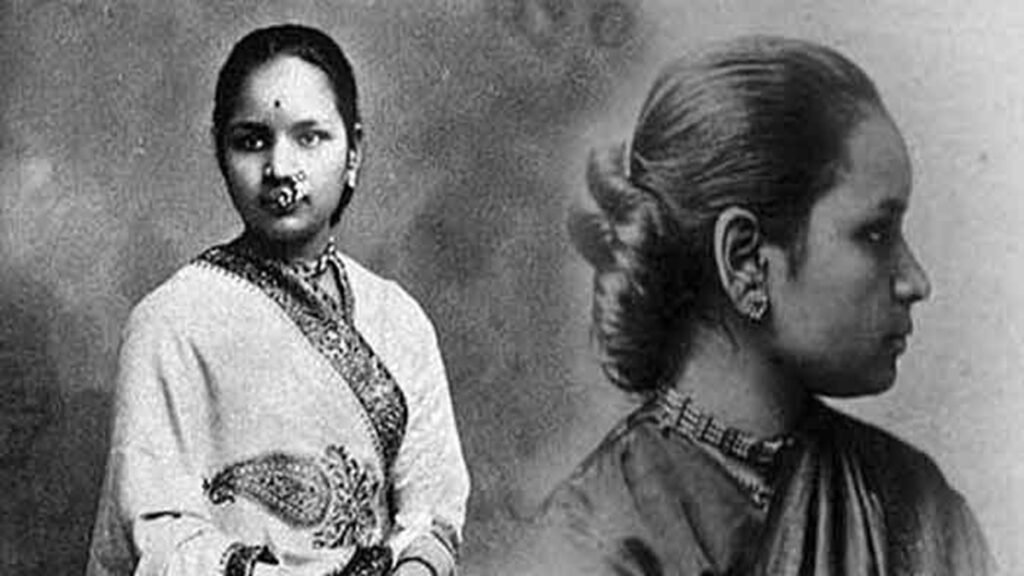In the annals of Indian history, few names shine as brightly as Anandibai Joshi, the first Indian woman to obtain a degree in Western medicine. Born on March 31, 1865, in Kalyan, a town near Mumbai (then Bombay), Anandibai’s life is a remarkable story of courage, intellect, and perseverance against the deeply entrenched gender and social norms of 19th-century India.

Early Life and Marriage
Anandibai was born as Yamuna, into a conservative Brahmin family. At the tender age of nine, she was married to Gopalrao Joshi, a progressive thinker nearly twenty years her senior.
Gopalrao, a postal clerk, was a man ahead of his time who believed in women’s education—a radical idea in an era when girls were mostly confined to domestic roles and denied formal learning.
After marriage, Yamuna was renamed Anandibai, and with Gopalrao’s encouragement, she began her education. Tragedy struck early when Anandibai gave birth to a son at the age of fourteen, who died soon after due to lack of proper medical care.
This devastating experience inspired her to pursue medicine so she could help other women avoid such heartbreak.
Journey to the West
Encouraged by her husband, Anandibai applied to colleges in the United States.
With support from American missionary women and a wealthy benefactor named Theodicia Carpenter from New Jersey—who would become a lifelong friend—Anandibai secured admission to the Women’s Medical College of Pennsylvania (now part of Drexel University).
In 1883, at the age of 18, Anandibai set sail alone to America, facing severe criticism and social ostracism in India for traveling abroad and crossing the so-called “kala pani” (black waters), which was considered a sin for high-caste Hindus at the time.
Academic Triumph and Historic Achievement
In 1886, Anandibai earned her medical degree, becoming the first Indian woman to receive a degree in Western medicine.
Her graduation thesis on “Obstetrics among the Aryan Hindus” reflected her intent to integrate medical science with cultural understanding, aiming to serve Indian women who lacked access to female doctors.
Tragic End
Anandibai’s health, however, had suffered during her stay in the United States.
She contracted tuberculosis and returned to India hoping to recover and begin her medical practice. Tragically, she died shortly after, on February 26, 1887, at the young age of 21.
Despite her short life, Anandibai Joshi left an indelible legacy. Queen Victoria reportedly praised her achievements, and her story became an inspiration for future generations of Indian women.
Legacy
- Institutions & Honors: The Government of India issued a postage stamp in her honor in 1962. Her name lives on in various scholarships, educational institutions, and women’s empowerment initiatives.
- Role Model: Anandibai’s life continues to inspire countless Indian women to pursue careers in medicine, science, and public service.
Conclusion
Anandibai Joshi was more than just India’s first woman doctor—she was a pioneer who broke barriers of caste, gender, and tradition to forge a path for others to follow.
Her story is a powerful reminder that change often begins with a single individual’s courage to dream differently and act boldly.


